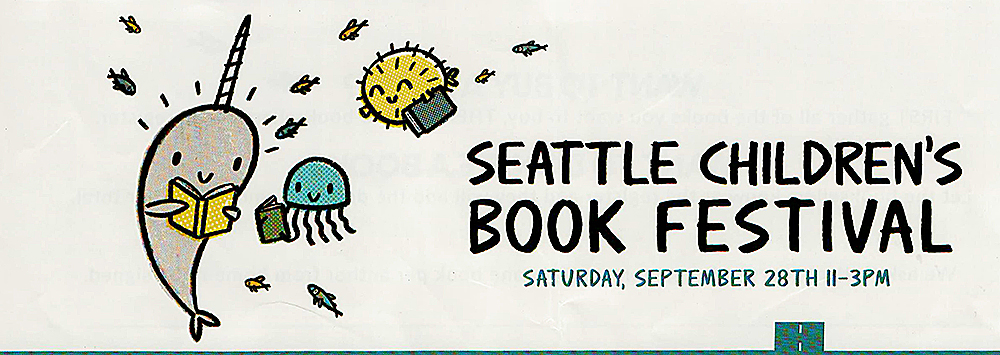Literary festivals have been tourist and economic drivers for decades in communities around the world. As more communities are supporting them, some organizers have found success by focusing on specific audiences, from fans of romance to young adult fiction. This focus can provide an immersive experience for a fan community, as well as an opportunity for publishers and authors to market directly to their target audiences. KidLit, a.k.a. children’s books, is one of the groups to more recently benefit from this focus. For the PNW region, there has been an absence of large events designed for children—they are typically included as tracks in other festivals such as the Portland Book Festival, and children’s book publishers and booksellers rarely take on primary roles.
Asia Citro of Innovation Press and others identified this gap and, given Seattle’s status as a UNESCO City of Literature, leveraged her community roots, company’s success, and social media reach to start the Seattle Children’s Book Festival in September 2019.

Seattle Children’s Book Festival Map

Seattle Children’s Book Festival
As a nonprofit, like most companies behind literary festivals, the SCBF used that status to provide options for attendees to purchase books at wholesale price for donation to low-income schools while attending for free. They also committed to using any profits to purchase additional new books for donation.

Donation Option Signage
The launch of this festival, with volunteers from both the community and local publishing staff, was enormously successful by many measures: over seven thousand attendees, with forty-nine authors signing and four hours of presentations. Held on the playground of an elementary school, the young attendees and their families waited patiently for autographs with a variety of authors including almost a quarter from traditionally underrepresented ethnicities.

Workshop Crowd
Some issues did arise: attendee feedback via Facebook indicated that improving the checkout system to avoid the two-hour wait is critical, as is providing access to local food sources at lunchtime. (Hangry children are not a good idea—for anyone involved!)
Now that they have attendance numbers, that will influence future location selection and food truck participation. However, since initial attendance numbers were unknown, that also kept sponsorship minimal per their post-event debrief on their Facebook page.
The festival organizers seem to have hit the basic checklist that most successful lit event launches have identified for success: VIP authors with name recognition (including Kazu Kibuishi, author of Amulet), local community support (at least twenty sponsors), a centralized location, and community volunteer participation (several volunteers identified themselves as members of the local community, representing publishers, schools, and recreation staff). Authors who participated were pleased about the energy and enthusiasm of the crowd, and had positive reflections on their experiences.

Happy Author Liz Wong
Authors? Happy. Attendees? Happy. Hosts? Happy. While the SCBF sadly had to be cancelled for 2020 due to the COVID-19 pandemic, the founders (as well as everyone else who participated and attended) hope it will be back in 2021. After all, everyone loves a successful series!

